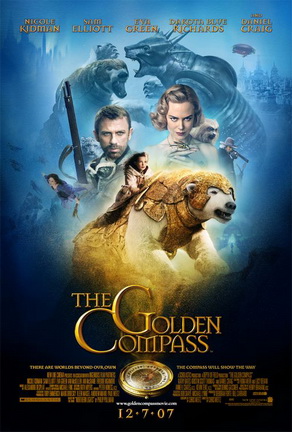This is the His Dark Materials trilogy by Philip Pullman, in particular the second and third books: The Subtle Knife and The Amber Spyglass.
The first book focuses solely on the girl, Lyra. The boy, Will, is introduced at the start of the second book, and he acquires the titular Subtle Knife which allows them to travel between worlds during the course of that book.
the two main characters (boy and girl) come from different worlds which are copies one of each other - one of them being dystopian (if I recall correctly)
Lyra (the girl) and Will (the boy) both come from Oxford, but in two totally different worlds. Will's world is (assumed to be - I don't recall if it's ever explicitly stated) our own, and is set in a modern setting.
Lyra's world is, in many ways, less technologically advanced (they use zepellins to travel, have no cars, etc.). However, they also have "daemons", which are external representations of the person's soul; when the person is young they can switch forms, but will eventually settle on a single form. They have some element of autonomy, but they're limited in how far away from their "master" they can travel.
They first meet in a third world that, if I remember correctly, has portals to several worlds, including both Will's and Lyra's.
one of the characters (the boy I think) can move from world to world by "cutting a hole" in thin air with a knife
This is the Subtle Knife referenced in the title of the second book. It's obtained by Will during the course of that book, and he's taught how to sense places in the fabric of the world(s) where he can make a "cut", creating a portal between worlds.
they travel at some point (by the end of the series) to Hell when they need to do something to save the worlds
In the third book, they travel to the "Land of the Dead". The trilogy is considered by some people to be anti-religion (specifically anti-Christianity), so it has a lot of religious elements and themes in it, so recalling this as Hell is likely.
The end is sad. The two characters fall in love but for some reason they cannot cross the world borders anymore (this is a decision they make for the good of the worlds) and they "meet" on a bench which is in both worlds and imagine the other one being on his/her bench as well.
There's a prophecy that Lyra is the "second Eve", and the primary goal of one of the book's antagonists is preventing Lyra's "sin" (falling in love, though possibly also having sex). In the third book she falls in love with Will, but - I believe - the Subtle Knife is broken (possibly on purpose), trapping them in their own Oxfords.

